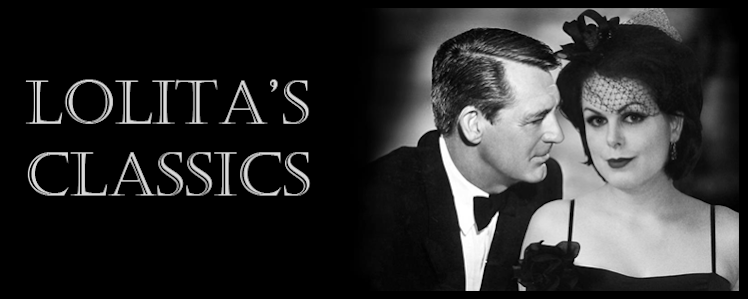
Love From a Stranger
Director: Rowland V. Lee
United Kingdom 1937
86 min
YouTube link to the first part of the film: link

Carol Howard (Ann Harding) lives with her best friend Kate (Binnie Hale) and a pretending-to-be-sick aunt (Jean Cadell) in a worn down apartment in a small neighbourhood in London. One day she wins a fortune with a winning lottery ticket, and she sees a great opportunity to re-new her life.
The new fortune starts a disagreement with her fiancé Ronald (Bruce Seton), and they leave each other. Carol and Kate goes to Paris to pick up the price money and have a swell time. On the boat they meet and befriend a charming gentleman, Gerald Lovell (Basil Rathbone), who they earlier had come to overlook Carol's apartment which she was going to rent out.
While in Paris, Carol and Gerald fall in love and get married, much to the despair of her former fiancé Ronald.
The couple soon moves to an old country house, far from civilization, an account of Gerald Lovell's nerves and a recent heart attack. It is now the film gets really interesting.
Gerald starts behaving more and more strangely. He forbids anyone to visit the cellar, where he keeps his photography equipment. He gets delirious when he hears Carol playing the piano, telling her to play faster and faster. It reminds him of the war in the dawn, he says... (Don't tell me you're not curious!)


Let me give you an example of the brilliant way the film builds the suspence.
We find Gerald Lovell alone in his cellar. He's whistling while fixing with some papers.

The whistling becomes music, the first notes of Grieg's In the Hall of the Mountain King.

The music becomes more and more intense and plays faster and faster, while we get a close-up on Lovell's concentrated face.

The music abruptly ends when Carol opens the cellar door. Gerald is furious and indignant, screaming at her to leave the room.

At this point it's obvious that something is wrong with Gerald Lovell, and the tension is unbearable.
I found an extract from a 1937 review of this film, written by C. A. Lejeune in The Observer, January 10th.
"was a bit slow in getting started, but once the extra characters of the early scenes are dropped and the film gets the two leading players alone in their Kentish farmhouse, it becomes a hair-raiser of the first order."
He continues:
"Ann Harding and Basil Rathbone…overplay a little in the final conflict, but I'm not at all sure that it isn't what is wanted for the picture. The whole treatment of the climax is strained, overwrought, and hysterical; on the border-line between laughter and madness. There is one shot, when the wife throws open the last door to escape and finds her husband standing dead-still on the threshold, that hasn't been equalled for horror since Cagney's body fell through the doorway in Public Enemy. A woman in front of me let out a scream like a steamship siren at this point in the first performance. That scream was the natural voice of criticism testifying to the film's success."
I quote this because it was so accurate in my opinion. It was the last third of the film where the actual suspence gets into the picture, and the acting is brilliant. There are so many lines delivered by the slowly-going-mental Basil Rathbone that I'd like to quote, and I will try to pick out a few.
But really, if you haven't seen this picture - do it!






An American poster for the film, which in the US was called A Night of Terror.
(Anyone thinking about the Eddie Izzard sketch on British vs American movies? "A Room With a View of Hell! Staircase of Satan. Pond of Death."
Quotes:
Carol: Don't you think you'd better lie down?
Gerald Lovell: No. We must be getting to work soon.
Carol: Don't you think it's better if you did't do anything more this evening?
Gerald Lovell: No. I've made my plans, and I never alter my plans.
Carol: Alright.
Gerald Lovell: You're a sensible girl, aren't you?
Carol: How do you mean?
Gerald Lovell: Well, you don't go on at a man. Very few women can say "Alright", and leave it at that. Then, most women are fools.
Carol: You think so?
Gerald Lovell: I don't think, I know! Born fools. "Woman's weakness is man's opportunity." Did someone write that? Or did I think of it myself? If I did it's good. It's very good! [chuckles] "Woman's weakness is man's opportunity."
Even though this film isn't a romantic one, per se, I'll end it with a kiss anyway. It's such a nice tradition!






2 comments:
Roland V Lee also directed Rathbone in 1939's The Son Of Frankenstein..Basil is so hysterical and "over the top" in that one,you'd think he was delivering a comedy performance..Its a fun film tho!
Christopher:
But with a title like "Son of Frankenstein" the film can't be supposed to be taken too seriously! I think Rathbone has a great feeling for comical timing. I haven't seen the film yet, but I'm planning to do so any day now!
Post a Comment